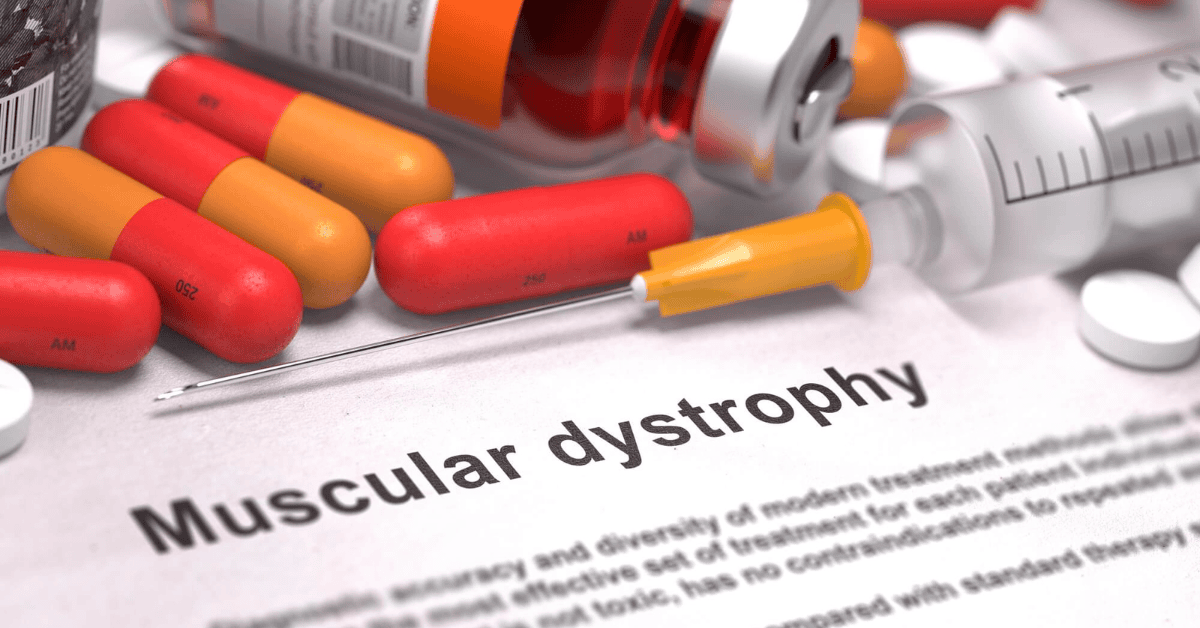The first-ever United Nations (UN)’s World Duchenne Awareness Day (WDAD) was observed on September 7, 2024, to shed light on Duchenne and Becker Muscular Dystrophy (DMD/BMD). This newly recognized global event emphasizes the need for advocacy, education, and inclusive initiatives to improve the lives of individuals affected by these genetic disorders.
Key Objectives of WDAD on September 7
- Global Awareness
The event aims to raise global awareness of Duchenne Muscular Dystrophy (DMD) and Becker Muscular Dystrophy (BMD), emphasizing the need for early diagnosis, treatment, and social inclusion. The day also encourages communities to recognize the daily challenges faced by patients with DMD/BMD. - Education and Advocacy
WDAD, observed on September 7, promotes education about these debilitating genetic disorders. Health professionals, caregivers, and the general public are encouraged to support scientific research and healthcare measures that can enhance the quality of life for affected individuals.
Watch: 10 Essential Benefits of Green Tea
- Inclusion for All
The 2024 theme, “Raise Your Voice for Duchenne,” highlights the importance of building an inclusive society where individuals with Duchenne Muscular Dystrophy are granted equal opportunities in every aspect of life.
Historical Background of WDAD on September 7
- Inception in 2014
In 2014, Elizabeth Vroom, President of the World Duchenne Organization (WDO), and Nicoletta Madia, the Community Coordinator, launched the observance of World Duchenne Awareness Day. Since its inception on September 7, 2014, the day has garnered international attention. - UN Recognition in 2023
On November 29, 2023, the United Nations General Assembly (UNGA) adopted Resolution (A/RES/78/12) officially recognizing September 7 as World Duchenne Awareness Day. This marks 2024 as the first official UN-recognized celebration of the day.
What is Duchenne Muscular Dystrophy (DMD)?
- Named After Dr. Duchenne de Boulogne
Duchenne Muscular Dystrophy is named after Dr. Duchenne de Boulogne, a French neurologist who was one of the first to document the disorder in the 1860s.

- Genetic Disorder
Duchenne Muscular Dystrophy (DMD) is a genetic disorder characterized by progressive muscle degeneration. It is caused by mutations in the dystrophin gene, which leads to the production of a dysfunctional or absent dystrophin protein. - Impact on Muscles
Dystrophinopathies, including DMD and Becker Muscular Dystrophy (BMD), are a spectrum of inherited muscle diseases. DMD is the most severe form, where muscle weakness starts in early childhood, often around the age of 2 or 3.
Common Symptoms of Duchenne Muscular Dystrophy
- Early Muscle Weakness
Children with DMD show symptoms as early as age 2 or 3. Parents may notice difficulty in activities like jumping, running, and walking. - Physical Signs
Other visible signs include calf enlargement, waddling gait, and lumbar lordosis (an inward curve of the spine).
Also Read: What Happens If You Eat Ginger Every Day for a Month?
- Respiratory and Cardiac Issues
Over time, DMD affects not only the muscles used for movement but also respiratory and cardiac muscles, leading to acute respiratory failure in advanced stages.
Moving Forward: Support and Awareness
Observing World Duchenne Awareness Day on September 7 every year can help generate support for scientific research, promote healthcare access for patients, and advocate for an inclusive society. By raising your voice for Duchenne, we can foster a world where individuals with Duchenne Muscular Dystrophy lead better lives with equal opportunities.
FAQs
What is Duchenne Awareness Day?
Duchenne Awareness Day is a global event held annually on September 7 to raise awareness about Duchenne Muscular Dystrophy (DMD), a genetic disorder that causes muscle degeneration and weakness.
What is the theme for World Duchenne Awareness Day 2024?
The theme for World Duchenne Awareness Day 2024 is “Breaking Barriers for Duchenne Families,” focusing on the challenges faced by families and ways to improve their quality of life.
Who discovered Duchenne?
Duchenne Muscular Dystrophy was first described by French neurologist Guillaume-Benjamin Duchenne in the 1860s.
What is the DMD gene mutation?
The DMD gene mutation involves the absence or dysfunction of dystrophin, a protein crucial for muscle function. This mutation leads to the progressive weakening of muscles in individuals with DMD.
What type of disease is Duchenne?
Duchenne is a genetic neuromuscular disease characterized by the progressive weakening and breakdown of skeletal and heart muscles.
What gender is Duchenne?
Duchenne primarily affects males, as the mutation occurs on the X chromosome.
Is Duchenne only in boys?
While Duchenne predominantly affects boys, in rare cases, females can be carriers of the gene mutation and may exhibit mild symptoms.
What is the oldest Duchenne patient?
While Duchenne used to have a very limited life expectancy, advancements in care have allowed some individuals to live into their 30s and 40s.
What is Duchenne lifespan?
Historically, the lifespan of someone with Duchenne Muscular Dystrophy was around the late teens to early 20s. However, improved medical care has extended life expectancy into the 30s or 40s.
What is Duchenne disease in girls?
In rare cases, girls can exhibit symptoms of Duchenne due to being carriers of the DMD gene mutation. Symptoms are typically milder compared to boys.
What age is Duchenne diagnosis?
Duchenne Muscular Dystrophy is usually diagnosed between the ages of 2 and 5, when muscle weakness and developmental delays become more noticeable.
Is Duchenne a disability?
Yes, Duchenne Muscular Dystrophy is considered a disabling condition, as it significantly affects motor functions and mobility over time.
Is Duchenne curable?
Currently, there is no cure for Duchenne Muscular Dystrophy, though treatments are available to help manage symptoms and improve quality of life.
How is DMD diagnosed?
DMD is diagnosed through a combination of genetic testing, muscle biopsies, and creatine kinase (CK) blood tests to identify dystrophin deficiency.
What is the blood test for DMD?
The creatine kinase (CK) test is used to detect elevated levels of CK, an enzyme that leaks out of damaged muscles, indicating potential DMD.
Why do people get Duchenne?
Duchenne occurs due to a mutation in the DMD gene on the X chromosome, which is usually inherited, though it can also occur as a spontaneous mutation.
What is the latest treatment for DMD?
Recent advancements include gene therapy approaches like exon-skipping drugs (e.g., eteplirsen) and other therapies aimed at increasing dystrophin production or protecting muscle fibers. Ongoing clinical trials offer hope for more effective treatments.

